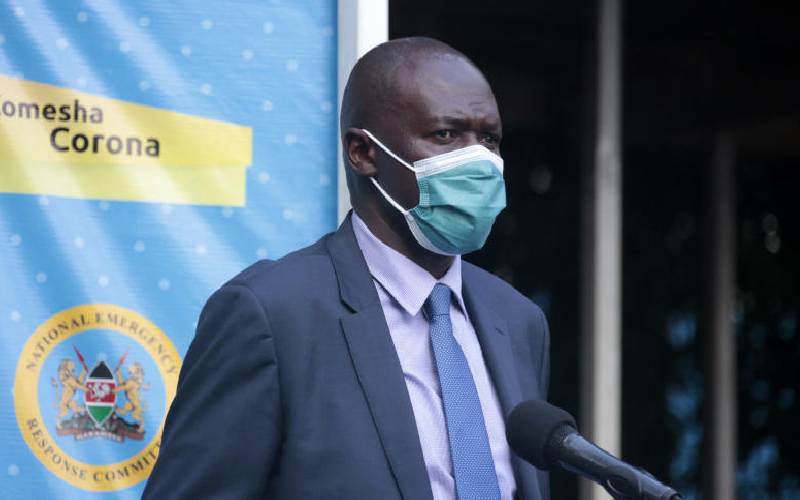×
The Standard e-Paper
Kenya’s Boldest Voice

Health Director General Patrick Amoth has said mandatory testing is necessary to curb cases of patients dying in hospitals and at their homes unaware of their Covid-19 status. [Boniface Okendo, Standard]
A test for Covid-19 will soon be mandatory for all patients visiting health facilities as the government plans to minimise the risks associated with the spread of the disease.